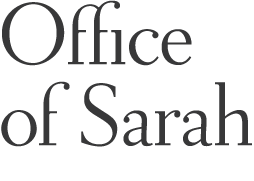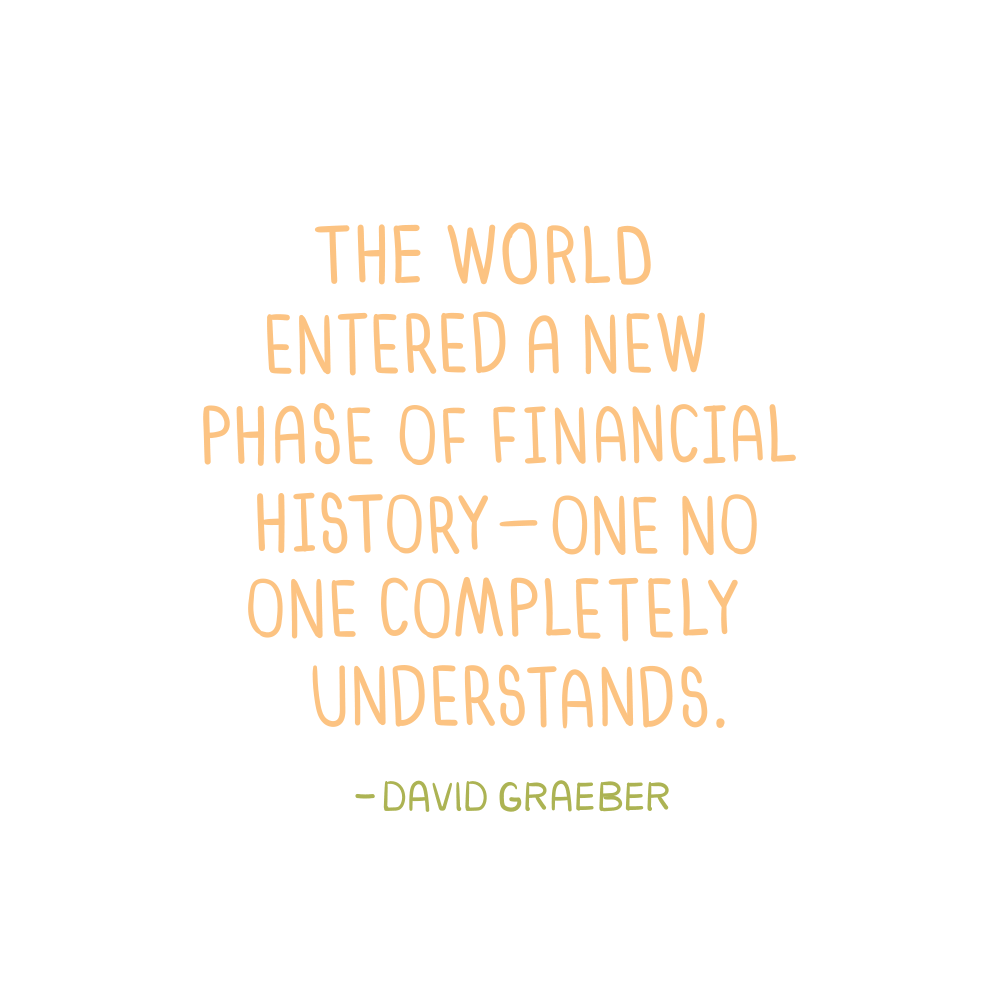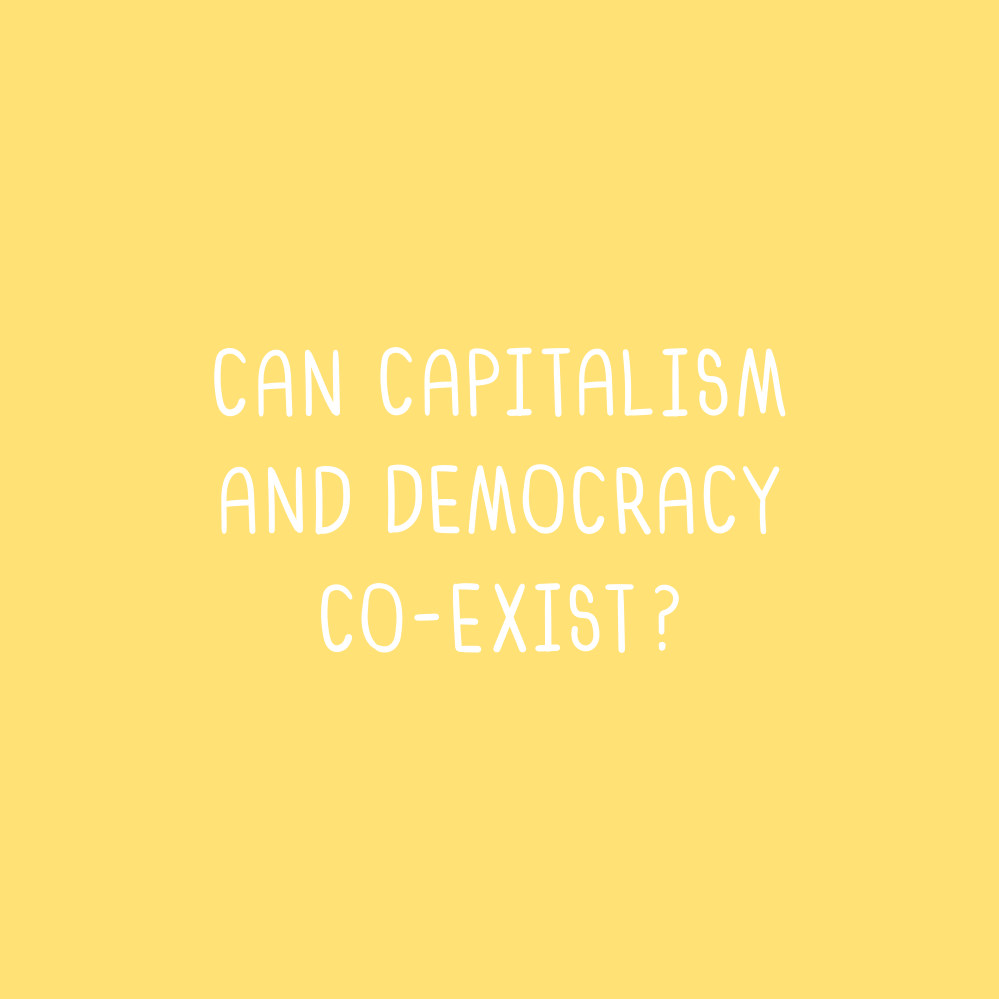Let them eat (a slice of) cake!
With the world in lockdown, unemployment at an all-time high, and the book Bullshit Jobs on the “completed” side of my book pile, I’ve been thinking a lot about work.
Notably – why this obsession with full-time work? Why isn’t the goal for everyone to work part-time?
The Work Jerk
First, let’s define work. The word work is a real jerk, because when people talk about “work” in the adult world, we implicitly know that they’re not talking about any old real work—housework, childcare, grocery shopping, making meals, care taking, working out, etc.—they’re talking about paid work. Employment, earning a livelihood, occupation, a goddamn J-O-B. The Work Jerk is like, “Oh, doing the dishes? Raising the next generation of humans? Making art? Writing a stupid blog post? You think that matters here? That shit doesn’t count unless someone is giving you a paycheck for it.”
Hopefully, the ridiculous economic bias towards paid work is implicit here, but let’s make it explicit, shall we? Because the so-called “economy” would not be possible if it wasn’t for all the unpaid labour and production going on in the background. A fascinating example: I was reading a book called Utopia for Realists (highly recommend) where the author mentioned that Denmark tried to “quantify the value of breastfeeding in its GDP” and that the sum came to $110 billion a year. Clearly, the economic value of breast milk production for the feeding of infants is significant – but because we don’t pay breast-feeding humans for this production and labour, it’s not counted in typical economic systems.
So even though it’s perhaps the least useful type of work there is (as I’ll argue in the coming paragraphs), because of the way it’s prioritized in our existing economic system, I thought it would be useful to talk about that “Jerk of all Work”: paid work.
Paid work
Why would I say that paid work is the least useful kind of work? Well, mainly because it has a serious problem at its core, which is that paid work and useful work don’t need to overlap. And as David Graeber has outlined so eloquently in his book Bullshit Jobs, often they don’t overlap or (worse) are inversely related: the more actually useful your job is to society, the less you make. Likewise, often the more you make, the less benefit your work offers to society.
For example: the average salary of a custodian in Edmonton is $39,140. Particularly in light of the current raging pandemic, I think we can all agree about how important (and risky) the cleaning of our shared spaces is to the functioning of every single business and social service. A cleaner’s economic value VASTLY exceeds what we pay them.
And then, you have the average salary of an Edmonton Investment Advisor, almost triple our custodian’s salary at $108,386. Unlike the custodian (who is out there making things cleaner and safer for everyone), a Financial Advisor is engaged in taking the extra money of their client and “moving it around” to hopefully get that money to make more money* for that one client.
Now, let’s say we had to completely eliminate one of these jobs. Which job keeps us healthier and (distinctly, in the case of COVID-19) much more alive? Which one might make no difference whatsoever, and (critically) might not even make a difference to the value of your portfolio??
The fact that we value custodians, teachers, and garbage collectors lower than an Investment Advisor speaks to the true bullshit of our system, and have you read Bullshit Jobs yet? Get on it, friend! (honestly, you could probably read it while you’re on the clock at your very own bullshit job)
One of my main takeaways from Graeber’s book is not that all paid work is useless but that a LOT of it is, and even worse, much of it is actually harmful.
It touches on something we intuitively know: that the most well-paid people are not, in fact, the most hard-working or productive. There’s also a problem with the freestanding honour that these terms seem to have. Hard-working. Productive. We treat them as the highest of compliments. But what if you’re working hard to destroy the planet? What if you’re productively creating wealth for yourself by paying your workers as little as possible? Hard-working and productive could be accurate descriptors for the worst fiends out of any comic book.
What does all this mean? It means that we could (and should) eliminate many, many useless or fiendish jobs. If we’re getting rid of a bunch of useless jobs, does that mean that unemployment needs to go up? Heck no! It means we can finally seize on the Utopian idea (imagine the heavens opening and angel voices) of part-time paid work.
*If you’ve ever felt confused about what the stock market is all about, the most apt description I’ve ever read is this Tweet proclaiming that “The stock market is just astrology for men”. Accurate.
The benefits of working part-time
Now that we’ve established that there are only a few paid jobs that really need doing, the idea of splitting them up between two people (or even three, four or five people!) seems both practical and appealing.
Unemployment would drop to all time lows, because we could simply split jobs between people until everyone had a share. We would all be less stressed, have more time to care for our bodies, and better health outcomes overall. It would mean more time for friends, family, side projects, and hobbies. And maybe, now that our time has been set free from its bullshit job constraints, we can actually get down to the REAL business of life: enjoying our limited years on earth, dismantling violent systems, maybe, oh saving the planet from the impending global climate catastrophe??!! There are so many non-paid work options that hold infinitely more value than increasing Facebook’s (or any company’s) shareholder profits.
I honestly feel this part-time work thing would be so easy to implement. Any new job that comes up? Just split it in two. Don’t have enough people trained up to be able to split a job two-ways? Sounds like that’s a job opening for two part-time teachers! Turns out your job is actually purposeless? Thank god you can now escape it, and get out of there to find yourself a sweet part-time career and a cool hobby.
But what about that money, honey?
Now, I know some of you are huffing and puffing over on your side of the screen about money. If everyone is working part-time, how will we afford to pay our bills? What about that money, honey? Everyone’s yelling at me about money and debt.
First of all, may I remind you that money IS debt, and if you don’t believe me, go back and read my blog post The Curious History of Debt, and yes it’s about my thoughts on another eye-opening book by David Graeber called Debt: The First 5,000 Years (that you should also read) and oh god, am I turning into an anarchist?! In short: no matter what you’re doing with money, you’re trading in past or future debts. Money is a fiction created to help make trading resources easier, and as soon as it stops being helpful, we can just change the story we tell ourselves about it. I mean, at one time money was backed by gold, and then one day President Nixon simply declared it wasn’t, and poof! That reality stopped existing. Major global stories we tell ourselves about money can really change in the span of a single day! They did it in the 70s and goddamn, we can do it again.
Second of all, money would be a lot less necessary if we had Universal free healthcare, education, and a Universal Basic Income.
How do we pay for all these supports? There are probably thousands of creative solutions to this question. But if you think it would be “impossible” consider this:
Many countries are already doing the “impossible” including Finland, Denmark, New Zealand, and more.
Practically, if everyone is working part-time, then everyone can be paying taxes. And since we’ve eliminated those high-earning bullshit jobs, you no longer have the ultra-wealthy evading taxes (also, you have all that money freed up in government, because you know that system is full of useless jobs). Finally, talk about a real investment! An investment in universal healthcare, education, and basic income will pay itself back in spades. There is quite a bit of existing research that shows it’s both more beneficial AND cheaper in the long run to just give people basic human supports such as free healthcare, free education, and universal basic income.
The best part
One of the best parts of this part-time work revolution is that, for some of you, it’s something that could be implemented today. Do you own a company, work in HR, or hire contractors? The next time you’re looking to hire someone, just divide that job into two jobs. Split that gorgeous cake of a job right in half! It’s that easy! And now two (or three) people get to eat that sweet cake. Let’s keep going with this analogy, because isn’t a full cake for one person a bit much? Wouldn’t you want to leave room for some veggies (exercise), nuts (side projects), ice cream (friends) and pizza (hobbies)?
And if you’re like “Eeeek, how will the work get done, we’ll fall behind, what about the extra health insurance costs for the company, blah blah blah?”. First off, calm down. It sounds like you might be too stressed and maybe in need of splitting your own job in half? Besides, what the research shows is that long hours tend to make employees more stressed, more prone to mistakes, and less productive. So just split that cake, give ALL your employees full health coverage (because it’s the humane thing to do), and honestly it’s going to better for your company (and more importantly the humans who work there, including yourself) in the long run. A textbook win-win situation, and it’s allowing me to finish off on a really cheesy (sweet?) note, which I love:
Let them divide and THEN eat the cake! Together. Everyone gets a slice!







